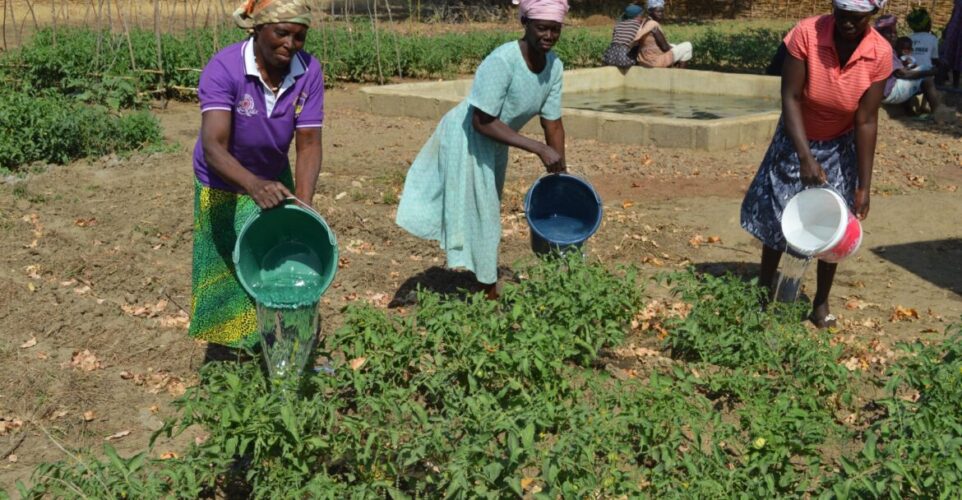The Upper East region of Ghana is one of the country’s driest and poorest. The long dry season means those that live there often rely on dugouts to provide water for crop production, tree growing, and livestock which run dry early into the season. Further, the intense dry contributes to wildfires which spread throughout grasslands threatening crops and forest landscapes.
Shifting rainfall patterns in the face of climate change have only amplified these challenges.
However, thanks to a new high-yielding borehole, funded by the Forest and Farm Facility (FFF), in the Nabdam district of the Upper East region, farmers will be able to engage in year-round farming leading to better business opportunities, livelihood improvements, and food security.
“The water makes us happy,” tells Lydia Miyella, Director of Maaltaaba Peasant Women Farmers’ Cooperative. “With water, we can farm all year round. Before the borehole, the dugouts would dry up after three months, but now we have enough water to farm from January to June and into the major rainy season”.
Helping each other
Women peasant farmers formed Maaltaaba, meaning “helping each other”, in 2015 as a support network to improve productivity and household incomes through sustainable (organic) agriculture, environmental conservation practices, and proper agri-business and marketing. The cooperative represents 670 members from the Nabdam and Talensi districts of the Upper Easter region.
Over 80 percent of the members are widows and single mothers with little or no formal education who face social stigmas and discrimination within their communities. Many of these women engage in rain-fed crop, vegetable and livestock production, off-farm production of shea nut and baobab derivatives, charcoal and baskets, and other trading activities.
“We were a group of young single mothers who would come together, sit down, and share ideas on how to help each other. During the rainy season, we would support one another to plow, sow or harvest crops,” Lydia describes.
Since then, the cooperative has evolved to provide more formalized support to its members, including training, advocacy, and social security.
Award-winning entrepreneurship
With FFF support, Maaltaaba provided business training for 100 women, opening new opportunities for entrepreneurship.
As a result, women look beyond the village market squares to sell their produce. New partnerships have enabled bulk sales equalling more than 250 tonnes of vegetables to restaurants and boarding school cafeterias. While a partnership with Agriterra allowed a pilot sale of 44 bags of soybeans, which Maaltaaba hopes to scale up to 1 000 in 2023.
The hard work of Maaltaaba members is gaining recognition across the Upper East region and beyond, with four members receiving district-level awards on the National Day of Farmers in December 2022.
New opportunities
As part of the support from FFF, members received training on organic vegetable production, such as using organic composts instead of chemical fertilizers. Maaltaaba members who received the training have reported healthier diets and increased ability to produce and sell vegetables in the dry season, aided by the new borehole.
Greater household food security, improved production rates, and more income mean that women have started looking to the future. Lydia recalls one interaction with a Maaltaaba member: “She said, ‘Madam, I went to the market and have used what I made to buy food, but I know if I could expand my business, I could pay the school fees for my children and buy property’.” Lydia laughs. “I told her, ‘Gradual, gradual. We’ll get there.'”
It’s not just Maaltaaba’s members with growing future ambitions. Working with FFF has strengthened the cooperative’s internal governance mechanisms and helped it to identify new funding opportunities. Lydia hopes that Maaltaaba will be able to install a solar-powered mechanized irrigation system in the near future.
“With the solar panel, we can extend our water to other places where more women can benefit. That is our next target.”
Article from

